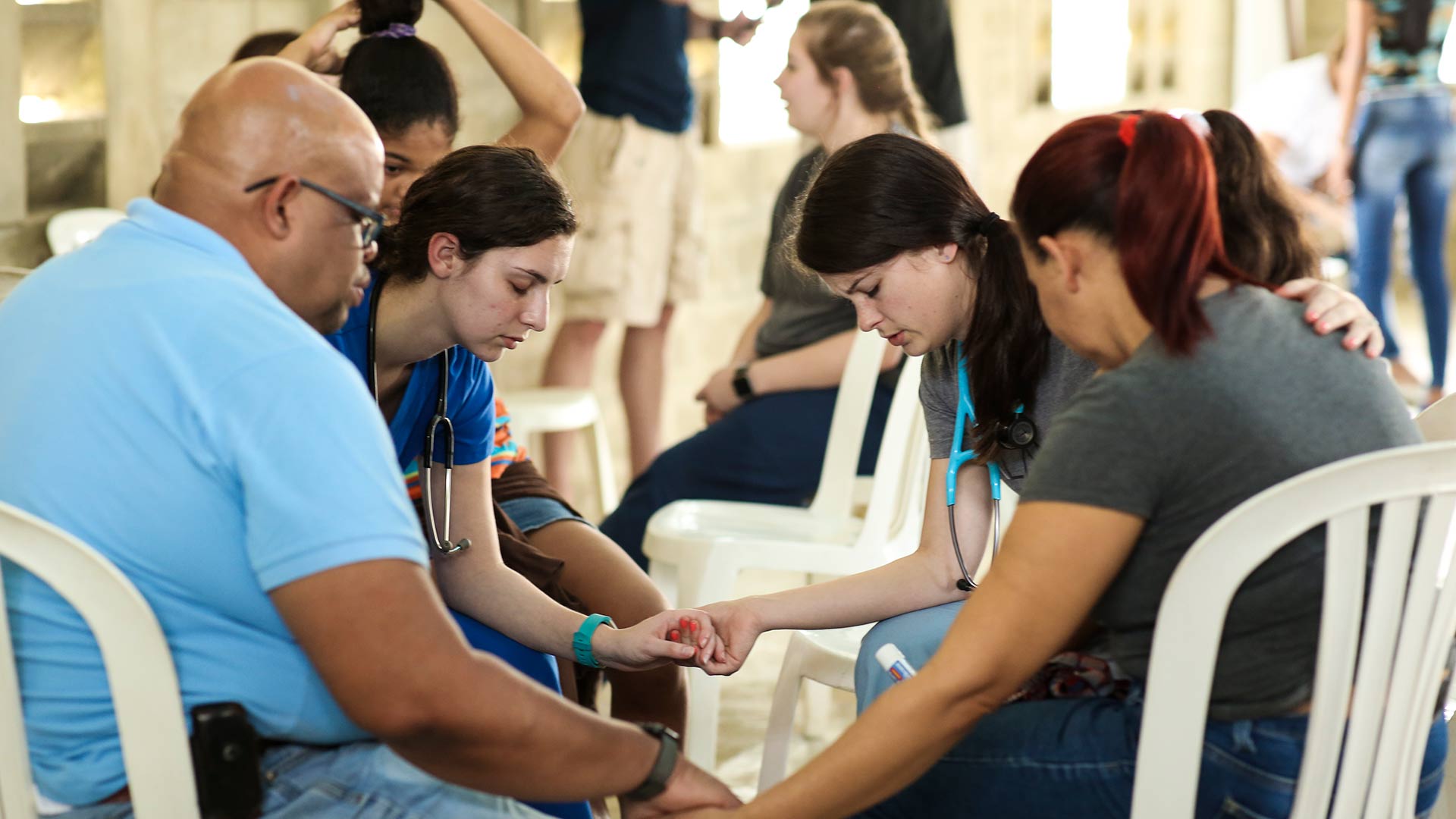Samford University's Office for Faith and Health serves to connect the College of Health Sciences through a missional purpose to the community and the world.
Whatever you do, do it all for the Glory of God. 1 Corinthians 10:31
The office supports the full engagement of the college’s four schools: School of Health Professions, Moffett & Sanders School of Nursing, McWhorter School of Pharmacy and the School of Public Health. While each school maintains academic autonomy with its programs, the office seeks to connect and support these diverse degree programs in community engagement and service-oriented research that touches the world.
Community Outreach
Several opportunities are available for students and faculty throughout the year to engage in community outreach and service. The majority of these opportunities are offered locally, making it possible for students to integrate service into their daily lives.
For example, in Perry County, Alabama, pharmacy professor Pilar Murphy practices at Sowing Seeds of Hope, a nonprofit organization based at the Perry County health department. She manages a patchwork of health care initiatives, and every month, students from the College of Health Sciences join her efforts, helping extend Murphy’s reach to patients who struggle to access health care of any kind.
“We have no hospitals in Perry County,” Murphy said. “We have few, if any, specialists of any kind. They may see a doctor in Selma and specialist in Birmingham and another specialist somewhere else. At our clinic, we often act as a bridge between the various resources people use. For too long, people down here had nowhere to go, so they ignored important symptoms until it was too late. We’re part of this community to help correct that. We’ll meet with patients before their doctor visits and coordinate their care.”
Service Learning Opportunities
Our four schools offer a number of service learning opportunities—domestically and abroad—where students can gain experience serving in a community setting while earning course credits.
For example, Alan Jung, dean of Samford’s School of Health Professions leads a team of students, alumni and professionals to serve the people of the Dominican Republic each year. They operate a mobile medical clinic, treating patients who otherwise might find it impossible to see a doctor.
“Time spent in the Dominican Republic undoubtedly revealed the magnitude of both physical and spiritual burdens of God’s people, and action we’re called to respond with,” said Emily Davis ’18 health sciences major. “Our team was enabled to build relationships and share the hope of Jesus from the platform of medical care. The week spent across borders has molded my view of obedience and purpose for the rest of my life as I pursue a profession in health care.”
Interested in medical missions? Explore the options offered by our global partners to engage with mission opportunities here at home and around the world.
HEAL Institute
The Healthcare Ethics and Law (HEAL) Institute was created as an interdisciplinary effort within Samford University in 1999. Its mission is to better support the unique and complex relationships between patients and health care providers, the individuals who make patient-care decisions and the institutional ethics committees who offer them advice and counsel. Keeping with the central mission of Samford University, the institute supports patients and health care professionals primarily with educational programs.
At present, the institute is the only program within the university that builds upon the cooperative spirit of faculty and fellows from the Howard College of Arts and Sciences and issue-related professional schools (business, law, nursing, pharmacy and divinity). The institute was established through a challenge grant from the principal benefactor/alumnus of Samford's pharmacy school, R. Clayton McWhorter. McWhorter founded and was chief executive officer of HealthTrust, Inc., which owned and managed acute care facilities. He founded LifeTrust America (a senior services corporation) that operates throughout the Southeast.
McWhorter championed clinical ethics efforts in all his companies and made the initial challenge grant to create Samford's Healthcare Ethics and Law Institute. A 1955 pharmacy graduate of Samford, he served as chair of the university's board of overseers and was on the school of pharmacy advisory board.

